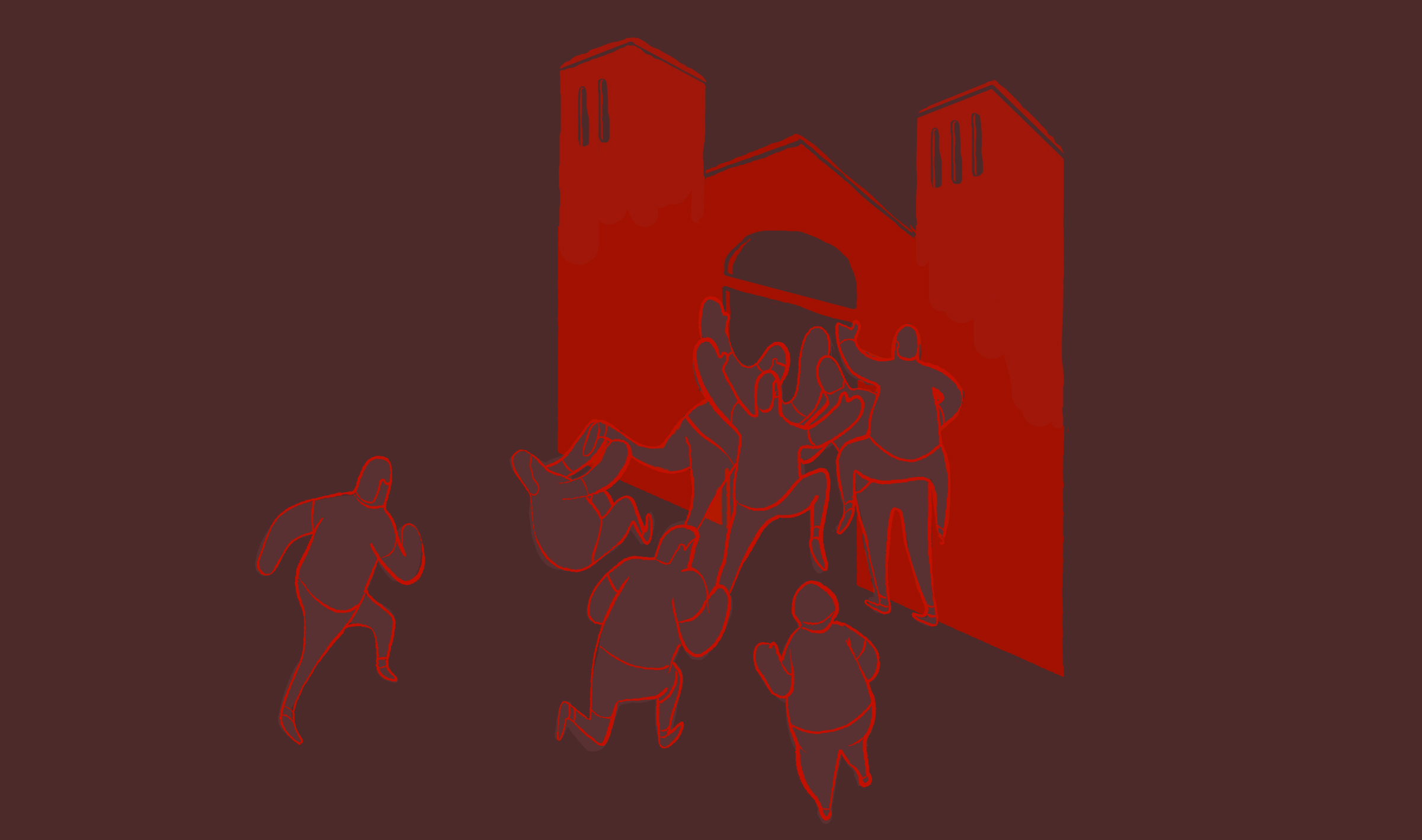The Quad: What is it like to transfer out of UCLA?

(Harish Balasubramani/Daily Bruin)
By Yao Lin
April 18, 2017 5:15 p.m.
Although many of us may have chosen to camp out in our rooms or flee to Coachella on the weekend of Bruin Day, our wariness of participating in the day’s festivities does not lessen the pride we have for being a Bruin. With another Bruin Day for transfer students coming up, the line of incoming students who seek to claim “UCLA” in their Instagram bios, pictures in front of the Bruin Bear and snapchats of Royce Hall seems endless. Yet, just as some individuals want in, others want out.
While we might be aware of the 22,287 transfer applications into UCLA for fall 2016, we may be less informed of the number or circumstances of students who want to transfer out of UCLA. In fact, transfer-out cases are nearly unheard of. State-of-the-art dining halls, a top-ranked public university – why would anyone want to leave? However, as much as the UCLA college experience is romanticized as magical and one-size-fits-all – just ask our campus tour guides – the reality may be different from these expectations.
Exact statistics on the number of people who transfer out of UCLA are largely unknown. While people who leave UCLA have the option of declaring nonattendance on MyUCLA, this is not a requirement. UCLA does not have to be notified that you will not be returning next quarter due to a school transfer. The system will eventually pick up on nonattendance when tuition fees are not being paid and classes are not being enrolled in.
Similar to the way that final leave due to transfers may go unaccounted for in the system, the actual transfer-out process may also go unnoticed or unattended to by the administration due to the limited breadth of UCLA’s resources.
This lack of attention is because academic counselors can only offer general strategies in regards to the transfer-out process.
In the California Master Plan of 1960, all UC universities, including UCLA, were only designed to “provide instruction in the liberal arts and sciences, and in the professions, including teacher education, and shall have exclusive jurisdiction over training for the professions” such as law or medicine. The purpose of community colleges, on the other hand, was to prepare students to transfer to other institutions with classes through the 13th and 14th grade level.
Corey Hollis, director of College Academic Counseling, echoes this exact sentiment.
“One of the missions of community college is to prepare students to transfer out to four year colleges, that’s why they have transfer counselors in place,” she said. “UCLA’s mission is not to transfer people out. We are not trained to do so.”
For example, a counselor could explain to a student generally what good academic standing means to another institution or, if the student isn’t in good academic standing, a counselor might suggest community college as an alternative. Other than that, assistance with determining what courses or credits would transfer may be limited as this information may be entirely up to the new institution. However, if the new institution has any questions about a student’s coursework, counselors are willing to work with other institutions on behalf of the student within the privacy restrictions of FERPA.
[Related: All Students should take advantage of College Academic Counseling]
Jonathan Im, who transferred out of UCLA as a second-year molecular, cell and developmental biology student, recognizes this as a lack of resources and substantial assistance on UCLA’s part. He also acknowledges that the administration has a tough job with more than 30,000 students. He said although he had gotten transcripts from academic counseling, he was by and large on his own for his transfer application process to Boston College.
However, Im does not blame administrators for not providing more concrete aid.
“UCLA is not really an environment for someone to hold your hand through these processes,” he said.“(There is a) ‘if you need any help, we’re not going to come see you’ mentality.”
For Im, his reasons for leaving UCLA were not so much about distancing himself from UCLA, or a burning desire to head to Boston College. The primary reason for his transfer was a desire to join a church community in Boston that he felt like he needed.
“It was more a pull factor (toward Boston) than a push factor (from UCLA),” Im said.
Robert Cai, who transferred out as a first-year pre-economics student, said his application process was mostly independent as well. There wasn’t anything specific he necessarily needed help with, he said.
However, Cai did say he feels like academic counseling sometimes does not give enough attention or information to students. In an unrelated matter, he had tried to set up an appointment for career counseling but was deterred when the next available appointment was the following month.
“I would like there to be more (resources), a place you could talk, sit down, and get help to go through the process together,” he said.
Cai is now back home in Iowa. He had originally wanted to try college far away from home. Although he said he really enjoyed UCLA overall, Cai thought it might’ve been too big of a school for him.
Students who seek to continue their academic careers or futures outside of UCLA should not be discouraged from doing so due to the lack of clear guidance on the part of UCLA or the tedious and strenuous process of yet another application process.
“One of the barriers to transferring out is that it’s harder to change your path than stay in your path,” Hollis said. “If the issue (behind the transfer) isn’t UCLA, the issue is going to follow you no matter where you go.”

